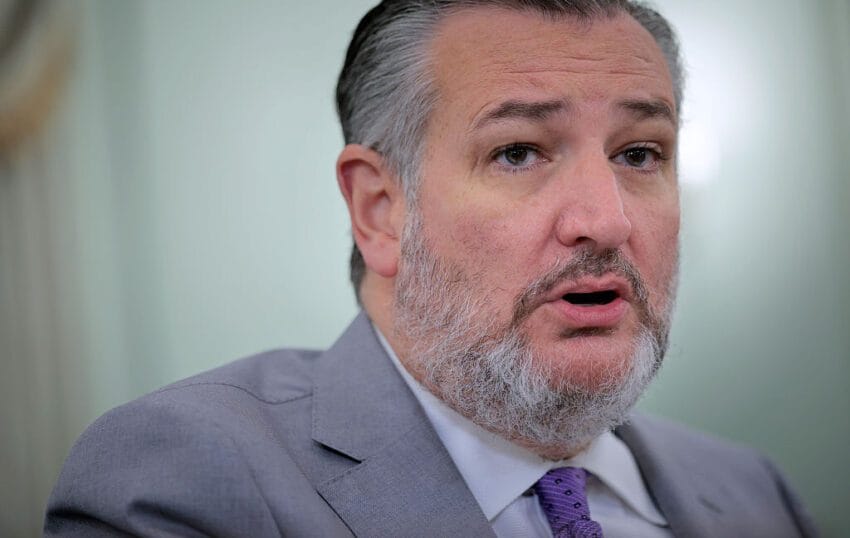
ted cruz ai bill could let firms Senator Ted Cruz’s recent proposal for an AI policy framework has sparked significant controversy, with critics arguing that it could enable major tech companies to circumvent essential safety regulations.
ted cruz ai bill could let firms
Overview of the Cruz AI Policy Framework
Senator Ted Cruz (R-Texas) has introduced a new policy framework aimed at shaping the future of artificial intelligence (AI) in the United States. The framework advocates for a “light-touch” regulatory approach, which Cruz argues is necessary to maintain American leadership in AI technology. He emphasizes the importance of embedding “American values” into AI development, contrasting these values with those of other nations, particularly China.
Cruz’s proposal comes at a time when AI technologies are rapidly evolving, raising questions about their implications for society, privacy, and safety. The senator’s framework aims to position the U.S. as a global leader in AI, but critics are concerned about the potential consequences of such a deregulated environment.
Key Provisions of the Framework
One of the most contentious aspects of Cruz’s proposal is its call to block what he describes as “burdensome” state and foreign regulations on AI. This approach is designed to create a more favorable environment for tech companies to innovate without the constraints of local laws that might prioritize public safety or ethical considerations.
Blocking State Regulations
Cruz has previously attempted to implement a decadelong moratorium on state-level AI regulations, arguing that such laws could stifle innovation and hinder the competitive edge of American technology firms. His efforts to include this moratorium in a broader budget bill were unsuccessful, but the idea remains central to his current framework.
Critics argue that blocking state regulations could lead to a lack of accountability for tech companies, allowing them to engage in potentially harmful AI experiments without oversight. This concern is particularly relevant given the increasing prevalence of AI in various sectors, including healthcare, finance, and transportation, where safety and ethical considerations are paramount.
Federal Authority and “Sweetheart” Deals
Another significant concern raised by critics is the potential for the proposed framework to grant the White House unprecedented authority to negotiate “sweetheart” deals with major tech firms. This could allow companies to bypass existing laws designed to protect the public from reckless AI experimentation.
Such arrangements could lead to a scenario where tech companies, in exchange for political support or financial contributions, receive exemptions from regulations that are meant to ensure the safety and ethical use of AI technologies. This raises ethical questions about the influence of money in politics and the potential for conflicts of interest.
Reactions from Stakeholders
The response to Cruz’s proposal has been overwhelmingly negative among various stakeholders, including lawmakers, industry experts, and advocacy groups. Many express concern that the framework prioritizes corporate interests over public safety.
Lawmakers’ Concerns
Several lawmakers from both parties have voiced their opposition to Cruz’s approach. They argue that a lack of regulation could lead to dangerous consequences, particularly as AI technologies become more integrated into everyday life. Bipartisan opposition has emerged, especially in light of recent incidents where AI systems have caused harm or raised ethical dilemmas.
Industry Experts Weigh In
Industry experts have also expressed skepticism about the proposed framework. While some agree that a more flexible regulatory environment could foster innovation, they caution that it should not come at the expense of safety and ethical standards. Experts argue that a balanced approach is crucial to ensure that AI technologies are developed responsibly.
Advocacy Groups’ Opposition
Advocacy groups focused on consumer rights and technology ethics have been particularly vocal in their criticism of Cruz’s proposal. They argue that the framework could undermine hard-won protections and lead to a regulatory race to the bottom, where companies prioritize profit over public welfare.
Implications for the Future of AI Regulation
The implications of Cruz’s AI policy framework could be far-reaching, affecting not only the tech industry but also society at large. If the proposed measures are enacted, the U.S. could see a significant shift in how AI technologies are developed and deployed.
Potential Risks
One of the most pressing risks associated with a deregulated AI environment is the potential for misuse of technology. Without adequate oversight, companies may prioritize speed and profit over safety, leading to the deployment of flawed or harmful AI systems. This could have dire consequences, particularly in sectors where AI is used to make critical decisions, such as healthcare and law enforcement.
Global Competition
While Cruz’s framework aims to bolster American leadership in AI, critics argue that it could have the opposite effect. By allowing companies to operate without sufficient regulations, the U.S. may fall behind other nations that prioritize ethical considerations and public safety in their AI policies. Countries like the European Union are already moving towards more stringent regulations, which could give them a competitive advantage in the global AI landscape.
Public Trust and Perception
The erosion of regulatory protections could also impact public trust in AI technologies. As consumers become more aware of the potential risks associated with unregulated AI, they may become increasingly skeptical of its benefits. This could hinder the adoption of AI technologies in various sectors, ultimately stifling innovation and growth.
Conclusion
Senator Ted Cruz’s AI policy framework has ignited a heated debate about the future of artificial intelligence regulation in the United States. While the proposal aims to foster innovation and maintain American leadership in technology, critics warn that it could lead to significant risks for public safety and ethical standards. As the conversation around AI continues to evolve, it is crucial for lawmakers to consider the broader implications of deregulation and prioritize the well-being of society over corporate interests.
Source: Original report
Was this helpful?
Last Modified: September 12, 2025 at 12:37 am
0 views















